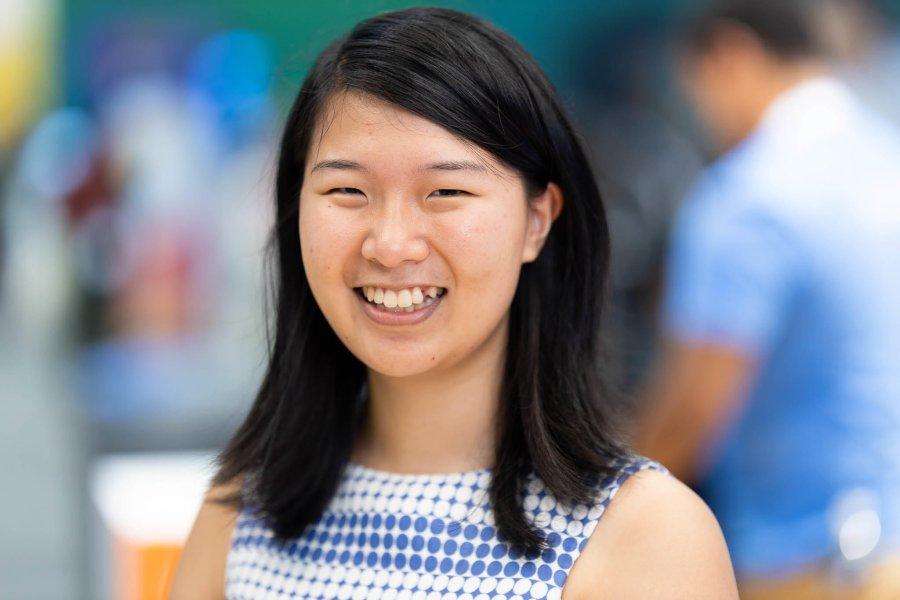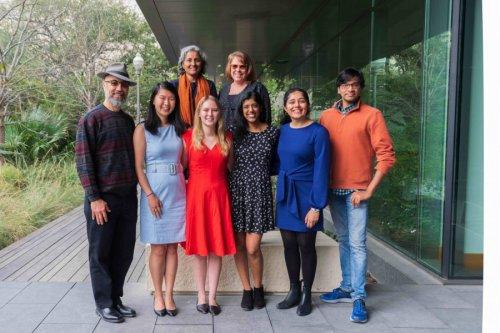
TXCS junior Rosaleen Xiong
The President’s Award for Global Learning is one of UT Austin’s most prestigious grants. Its mission is to create global leaders through providing selected students with hands-on, cross-cultural experience. Teams who apply for the award are tasked with examining a real-world problem affecting a specific geographical region, and creating and implementing a solution to it. After a rigorous selection process involving proposals and a pitch competition, one team is chosen from each of three regions. Selected teams each receive a generous $25,000 grant towards the implementation of their projects.
This year, the winning team in the Southeast Asia and Oceania region is comprised of four students, one of whom is Texas Computer Science (TXCS) junior Rosaleen Xiong. “I'm really honored and really excited to be able to use the skills that I’ve built in TXCS to create this sort of project,” says Xiong. The team is advised by TXCS professor Dr. Paul Toprac. “From the beginning, I could tell that Xiong and the team were passionate about the project,” says Dr. Toprac. “The project itself is exciting because it has the potential of helping many underserved and underprivileged people who need medical help. The combination is very compelling.”

The team of students is passionate about queer advocacy, as well as combining technology and health. They made it their mission to find a way to use technology as a solution for a pressing health problem. “We chose India because they recently decriminalized homosexuality in 2018, so this seemed like the right time to be discussing these sorts of issues and supporting people,” says Xiong. The team pitched their project to be conducted in the South Indian city of Chennai.
To get an on-the-ground look at the problem’s scope and the best way to address it while researching the cultural implications, the team reached out to several local NGOs. After some brainstorming, they decided to create a mobile application that would enable Indian healthcare providers to equitably serve LGBTQIA+ patients by equipping them with useful resources, best practices, and other information. “We’re hoping that this app can be a tool that they can use to fill the information gap,” says Xiong. The app is broken up into different modules. Examples of content included in these modules are the history of queer rights in India, STI prevention, respectful communication and pronoun use, and how to promote inclusivity in patient intake forms.
“The project will showcase how the Department of Computer Science at UT can create real-world software solutions to better the human condition. Ultimately, it is about leveraging the resources of UT and student talent to help those in need around the world,” says Dr. Toprac. “This may sound cliche, but this is a clear case of What Starts Here Changes the World.” Xiong seconds this notion. “The skills and frameworks and tools that I learned through my classes in TXCS have empowered me to be able to create this product that will change the lives of many across the globe,” she says.
Although their initial plan of traveling to India to conduct interviews and do on-site development work has been put on hold due to COVID-19, Xiong and her team are continuing to work on the project, and plan to implement a remote approach. “We’re definitely going to still be conducting interviews over the summer,” she says. “We’re pretty lucky because a lot of our work was building the app, which can still be made and shipped over as a product.” Along the way, they’re going to continue to rework and refine the app based on the feedback that they receive.
The team has built the app so that it can be easily adapted. In the future, they hope to expand the product to other regions of India. They are also considering its applicability to general health in the United States.



